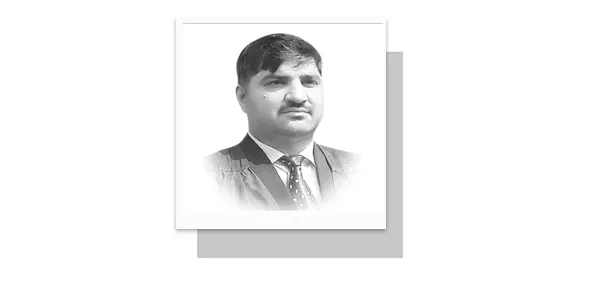THE Pakistan Democratic Movement (PDM) emerged as a coalition of major and minor religious and secular political parties in Pakistan, unified by a common goal: the removal of Prime Minister Imran Khan’s regime. This collective endeavour aimed to address the nation’s grievances regarding poor governance, a struggling economy, political victimization and a high poverty rate. The discontent extended across federal, Khyber Pakhtunkhwa (KP) and Punjab governments, all controlled by the Pakistan Tehreek-e-Insaf (PTI) party. The PDM’s formation brought together erstwhile rivals who shared commonalities such as facing corruption charges, holding foreign nationalities, owning offshore property and having previously held power without delivering substantial improvements, thereby fostering widespread frustration among the populace.
Moreover, dissident factions from Baluchistan (comprising the National Party, Balochistan National Party, and Pakhtunkhwa Milli Awami Party) and Khyber Pakhtunkhwa (including the National Democratic Movement and Awami National Party) joined forces under the leadership of Shehbaz Sharif, as Prime Minister. However, despite its comprehensive composition and stated objectives, the PDM’s effectiveness was hampered by significant political flaws, ultimately undermining its performance in the crucial February 2024 elections.
First, during elections maintaining solidarity among the ranks of PDM remained a big challenge as was observed during Senate elections wherein the divergent interests of major allied parties were reflected. The partners could not enter into a seat-adjustment arrangement. This divided the vote bank of former coalition partners. Similarly, the local bodies’ elections in Khyber Pakhtunkhwa also showed their disunity and contradictory interests. Second, Prime Minister Shehbaz had no jurisdiction to take any major decision without the tacit approval from his elder brother Mian Nawaz Sharif – a proclaimed offender. Nawaz Sharif wanted a clean chit from the superior judiciary of Pakistan. Third, the people also noticed the hidden rift and dissension within the ranks of PDM leadership on distribution of portfolios, especially the President of Pakistan.
Fourth, PDM brutally targeted the PTI leadership and its workers and left no stone unturned to demoralise and tortured them physically and psychologically. Their families were also targeted. Fifth, PDM also targeted PTI as a political party and tried its best to get it unregistered from the Election Commission of Pakistan. It is de-symbolised by taking the decades old Political Symbol ‘Bat’ with a hidden intention to break the vote bank of PTI. Sixth, Jehangir Tareen’s Istehkam-e-Pakistan Party in Punjab and Pervaiz Khattak’s PTI-Parliamentarian in KP were introduced to break PTI vote bank; but both miserably failed as their leadership could not succeed to win their seats in their respective constituencies. Seventh, the revolt of Ulema within JUI also disturbed the mandate of JUI. In various parts of KP, the dissent group of Ulema fielded its own candidates against JUI’s sponsored candidates. In addition, JUI also allotted seats to Non-Ulema candidates contrary to PTI’s religious candidates which further added fuel to fire and created resentment among the electors.
Eight, the PDM regime was a few families’ dominated regime. During elections, partners of the PDM distributed seats among their family members. Like Maulana Fazal Rehman, his two sons contested elections in DI Khan. Similarly, Akram Khan Durrani also allotted seats among his family. Besides, Pervaiz Khattak also allotted seats to his family members. In Punjab, Nawaz Sharif’s family contested on various seats. The common voter also noticed these dynastic tendencies. Ninth, Awami National Party lost its credibility by shaking hands with the Punjab-led regime. It also sought assistance from JUI during bye-elections. ANP was famous for anti-Punjab politics and secular politics. After the dissolution of the PDM regime, ANP started unabated criticism against JUI leadership.
In addition, the creation of the National Democratic Movement also weakened ANP’s narrative of a sole custodian of Pakhtoon community. Tenth, the abolition of Sehat Sahulat Card also resented the poor people in KP especially. Eleventh, IK’s undaunted stance and facing hundreds of judicial cases simultaneously further motivated his followers rather than flee abroad like other political leaders. Lastly, PTI leadership like Barrister Gohar and Sher Afzal played an excellent innings to bring electors under the umbrella of PTI and infused motivation and hope among workers.
Simply, it was political miscalculation on the part of PDM leadership to hold the reign of the government at that time when people were fading away from PTI-led governments. It would have been sagacious to let PTI complete its constitutional tenure and then go for an election process. PDM ignored the pulse of the people who were actively engaged to notice its policies and their mutual relationship. In addition, PDM brutally victimized PTI leadership and its workers which gained the sympathy of the general public and resulted in sympathy votes. All these factors led to alienation of the masses from these political parties and proved advantageous for PTI. It would be unjust to blame the Establishment for their failure.
—The writer is Chairman, Department of Political Science, Islamia College Peshawar.
Email: [email protected]










